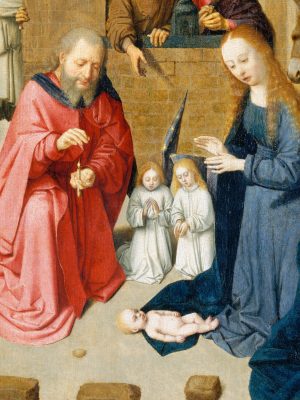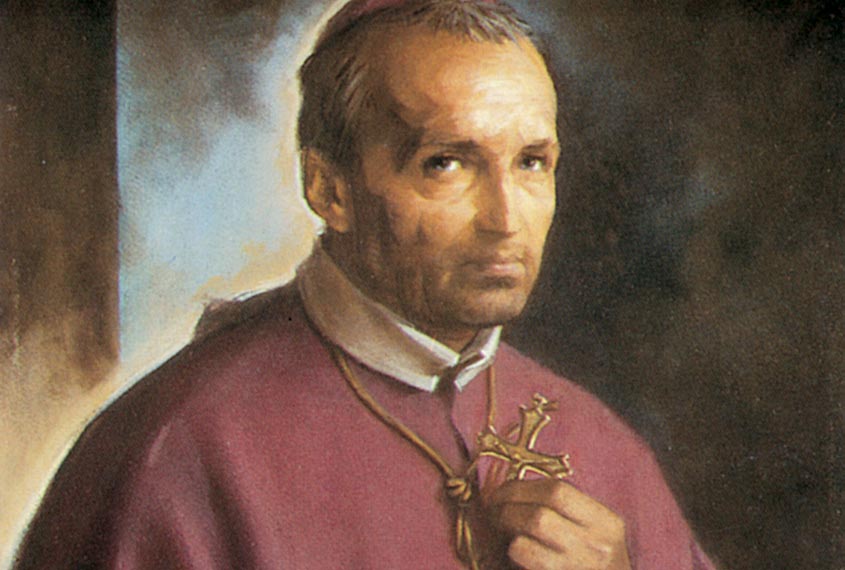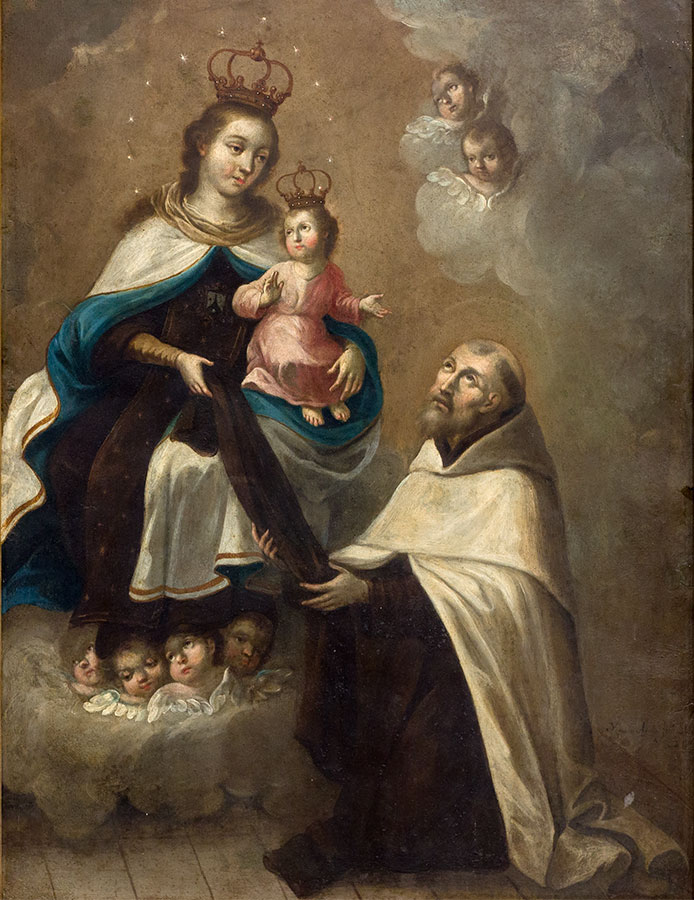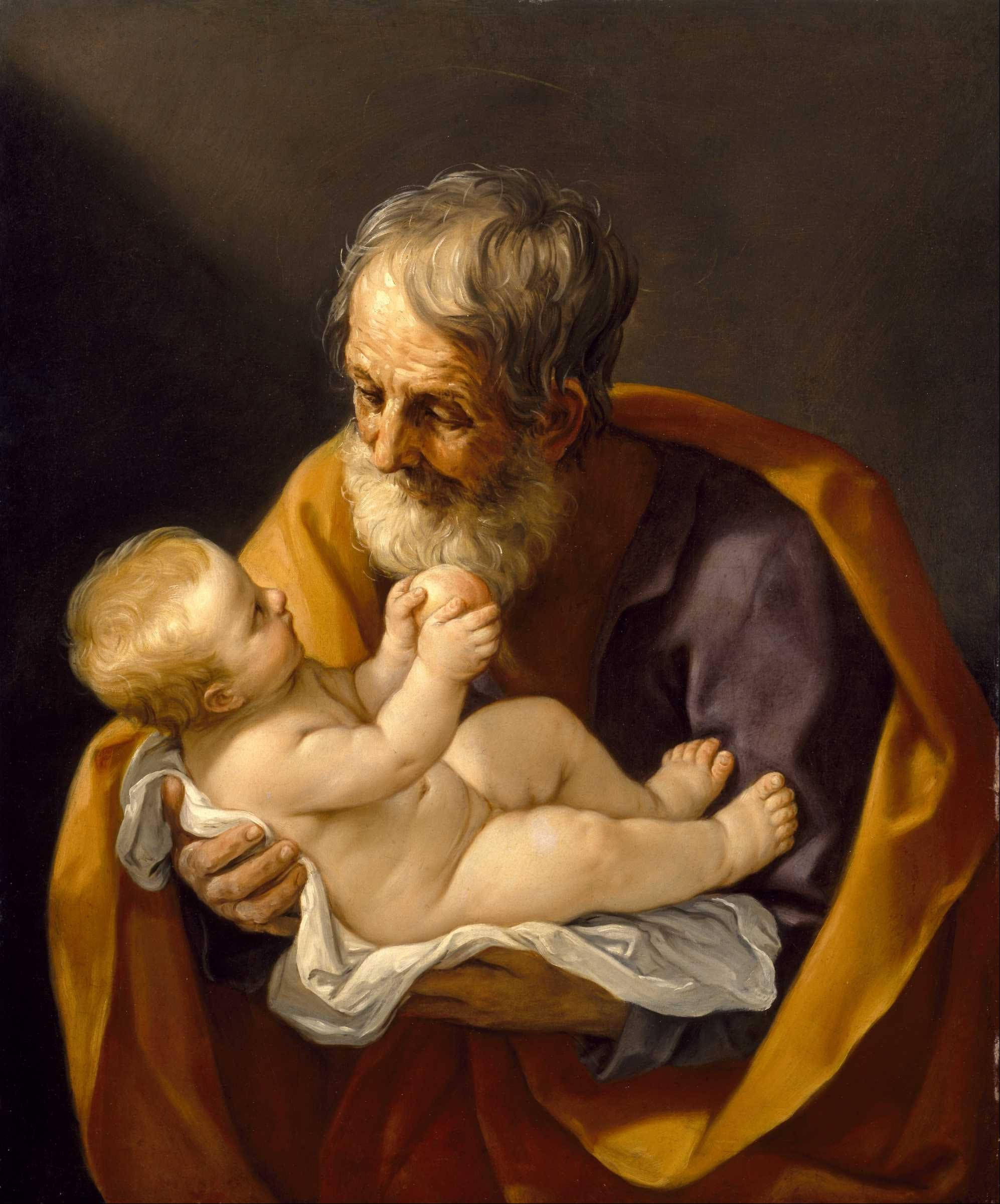God sent His only Son to redeem the world ensnared with sin. Rather than coming in His glory, Our Lord humbled Himself and took the form of an infant. Meditate with Saint Alphonsus Liguori on the humility of Jesus and the poverty He embraced for love of mankind.
The Greatest Sorrow of Jesus
Jesus Christ revealed to the Venerable Agatha of the Cross that while He was in His Mother’s womb, that which afflicted Him more than any other sorrow was the hardness of the hearts of men, who should, after His redemption, despise the graces which He came into the world to diffuse. And He had expressed this sentiment before, by the mouth of David, in the words just quoted, which are generally thus understood by the holy Fathers: What profit is there in My blood, whilst I go down to corruption? Saint Isidore explains whilst I descend into corruption, “whilst I descend to take the nature of man, so corrupted by vices and sins;” as if He had said, “O my Father, I am indeed going to clothe Myself with human flesh, in order to shed My blood for men; but what profit is there in My blood?”—the greater part of the world will set no value on My blood, and will go on offending Me, as if I had done nothing for the love of them.”
This sorrow was the bitter chalice which Jesus begged the Eternal Father to remove from Him, saying: Let this chalice pass from Me.” What chalice? The sight of the contempt with which His love was treated. This made Him exclaim again on the cross: My God, My God, why You have forsaken Me? Our Lord revealed to St. Catherine of Siena that this was the abandonment of which He complained—the knowledge, namely, that His Father would have to suffer that His passion and His love should be despised by so many men for whom He died.
And this same sorrow tormented the Infant Jesus in the womb of Mary, the foresight of such a prodigality of sorrows, of ignominy, of blood-shedding, and of so cruel and ignominious a death, and all to so little purpose. The holy Child saw, even there, what the Apostle says, that many (indeed the greater number) should trample under foot His blood, and despise His grace, which this blood would obtain for them: Treading under foot the Son of God, and offering an affront to the Spirit of grace. But if we have been of the number of these ungrateful men, let us not despair; Jesus, at His birth, came to offer peace to men of goodwill, as He made the angels sing: And on earth peace to men of good-will. Let us, then, change our will, repent of our sins, and resolve to love this good God, and we shall find peace, that is, the divine friendship.
Affections and Prayers
O my most amiable Jesus, how much have I too caused You to suffer during Your lifetime! You have shed Your blood for me with so much sorrow and love, and what fruit have You hitherto drawn from me but contempt, offenses, and insults? But, my Redeemer, I will no longer afflict You; I hope that in the future Your passion will produce fruit in me by Your grace, which I feel is already assisting me. I will love You above every other good; and to please You, I am ready to give my life a thousand times. Eternal Father, I should not have the boldness to appear before You to implore either pardon or graces, but Your Son has told me, that whatever grace I ask of You in His name You will grant it to me: If you ask anything of the Father in My name, He will give it you. I offer You, therefore, the merits of Jesus Christ, and in His name I ask of You first a general pardon of all my sins; I ask holy perseverance even unto death; I ask of You, above all, the gift of Your holy love, that it may make me always live according to Your divine will. As to my own will, I am resolved to choose a thousand deaths sooner than offend You, and to love You with my whole heart, and to do everything that I possibly can to please You. But in order to do all this, I beg of You, and hope to receive from You, grace to execute what I purpose. My Mother Mary, if you will pray for me, I am safe. Oh, pray for me, pray; and cease not to pray till you see that I am changed, and made what God wishes me to be.
Jesus Becomes Poor for Mankind
The Holy Church, in contemplating this great mystery and prodigy of a God being born in a stable, exclaims, full of admiration, “O great mystery! O wonderful sacrament, for animals to behold the Lord lying in a manger.”
In order to contemplate with tenderness and love the birth of Jesus, we must pray the Lord to give us a lively faith. If without faith we enter into the grotto of Bethlehem, we shall have nothing but a feeling of compassion at seeing an infant reduced to such a state of poverty that, being born in the depth of winter, He is laid in a manger of beasts, without fire, and in the midst of a cold cavern. But if we enter with faith, and consider what an excess of bounty and love it was in a God to humble Himself to appear like a little child, wrapped in swaddling-clothes, placed on straw, crying and shivering with cold, unable to move, depending for subsistence on His mother’s milk, how is it possible that we should not feel ourselves gently constrained to give all our affections to this Infant God, who has reduced Himself to this state to make us love Him! St. Luke says that the shepherds, after having visited Jesus in the manger, returned, glorifying and praising God, for all the things they had heard and seen. And yet what had they seen? Nothing more than a poor child trembling with cold on a little straw; but, being enlightened by faith, they recognized in this child the excess of divine love; and inflamed by this love they went on their way glorifying God, that they had the happiness to behold a God who had emptied Himself and annihilated Himself for the love of men.
Affections and Prayers
O my amiable and sweet Infant! Although I behold You so poor and lying on straw, yet I confess and adore You as my Lord and Creator. I know what it was that reduced You to so miserable a state: it was the love that You bore me. But when I remember, O my Jesus, how I have treated You in times past, the injuries I have committed against You, I wonder in myself how You have borne with me. Accursed sins, oh, what have you done! You have made me cause bitterness to the heart of my beloved Savior. Oh, my dearest Redeemer, for the sake of the sufferings You endured and the tears You shed in the stable of Bethlehem, give me tears, give me a great sorrow, that may make me all my life long lament the displeasure I have caused You. Grant me a love for You, but such a love as may compensate for the offenses I have committed against You. I love You, my Infant Savior; I love You, my Infant God; I love You, my love, my life, my all. I promise You from this day forth to love none but You. Help me by Your grace, without which I can do nothing. Mary, my hope, you obtain whatever you will from your Son, obtain for me His holy love; my Mother, hear me!
ooo
This article is taken from a chapter in The Road to Bethlehem by Saint Alphonsus Liguori which is available from TAN Books.









